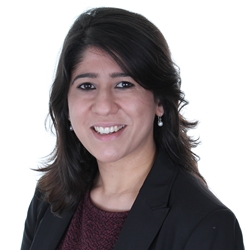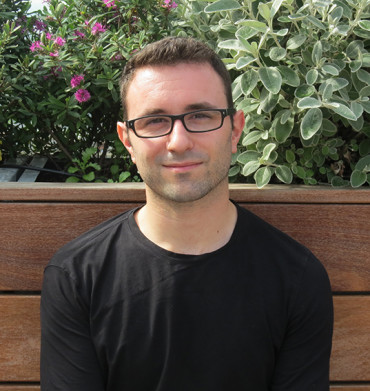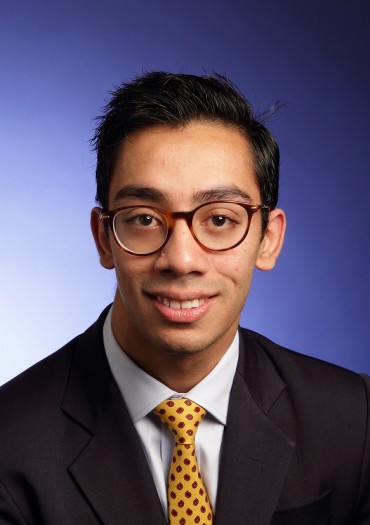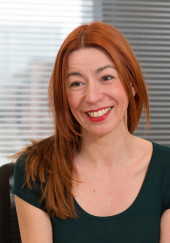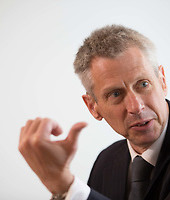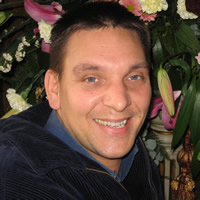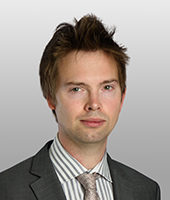
Eddie Eccles
I am a solicitor working in the London office of Covington & Burling as a senior associate. I also sit on its Disability & Inclusion Committee and co-chair the firm’s Disability & Mental Health Sub-Committee.
I’ve worked in law and the City for more than 10 years now, focusing on litigation and arbitration. I have been completely deaf in my right ear all my life and have needed to use a hearing aid on my left hand side since I was young. Everywhere I have worked, I have always found people to be very supportive of my disability, and I really believe that the City can be a great place to work for people who are disabled. But, of course, there can be challenges, and I’ve experienced some of those myself – everything from struggling to hear important Court submissions in old, echoing Court rooms, to trying to participate fully in meetings or external events when you can’t hear everything that is being said.
I also know from my own experience that working with a disability is always harder when you are newer to your career, or to your role, or to your employee – or just more junior than other colleagues and clients that are interacting with on a day-to-day basis. The challenges of working with a disability can feel extremely personal and isolating, so I believe that mentoring can offer an invaluable source of support to anyone who experiencing this world. City Disabilities offers a safe space to talk through any concerns you may have, however big or small, and to connect mentees with people who may have already had to deal with similar issues and challenges in the past. I am delighted to be a part of this mentoring scheme.
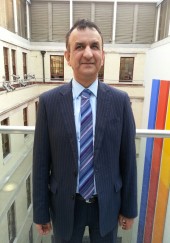
Imran Khan
My name is Imran Khan. I am a civil servant, working in the Cabinet Office, and I was introduced to City Disabilities by its founder, Robert Hunter. I used to meet Robert on the train as we made the same journey to work. Robert is profoundly deaf and I am registered blind, so as you can imagine, communication on a noisy train was challenging. On one occasion I wrote a text message on my mobile which I showed to Robert, he responded by speaking his answer and I replied by writing another message on my phone, and so on. That was the first time we communicated properly and I was inspired to learn that Robert was one of the leading lawyers in his field. Now that we had found a way to communicate, Robert told me about City Disabilities and asked if I would consider being a mentor. I was delighted to be asked as I have benefited from mentoring and coaching throughout my career.
Currently I work on policies to increase social mobility in the Civil Service and I recently developed a plan to increase social mobility and reduce inequality in the Civil Service, which was published in March this year. I have also helped to launch two staff networks, through which people working in different parts of the Civil Service tackle barriers that can be traced back to socio-economic backgrounds and related issues.
I have been in the Civil Service since 1999 and worked on some really interesting things: policy on telephone advice to suspects at police stations; guidance for prisons and lawyers on how to use systems for booking visits; developing a business case to secure funding for a website for charities where they can look for funding and managing a large fund which allocates money to charities that give advice on social welfare law issues.
As I have said earlier, I am registered blind, and even when I was on a temporary placement, the department I worked for enabled me to use braille displays and specialist software on my computer which helped me to do my job. My first boss was great, he motivated me and gave me the opportunity to take responsibility for important pieces of work and judged me for what I could do and not my disability. I have gone on to get three promotions since I joined, been able to move around to work on things that really interest me and worked with some really clever and inspiring people.
I am a mentor in my workplace and I also volunteer for “inspiring the future” where I go into schools and talk about my job and how my career has progressed. I have really benefitted from having worked with people who have encouraged me and helped me grow in confidence to reach my potential and think about aiming even higher. I find volunteering and mentoring really rewarding as I can give to others the type of help that has been so useful to me along the way.
I think City Disabilities is a great forum through which people with different disabilities can share those insights, hints and tips to overcome barriers to progression. I look forward to doing more mentoring through City Disabilities.
Tara Sethi
I am a Senior Environmental Consultant, working on major infrastructure projects, and I am profoundly deaf. I was deaf from birth, and received a Cochlear Implant 6 years ago. I have been through mainstream education, gaining a Masters in Environmental Sciences from University of Southampton – where I was the Disability Officer for the Student Union – and have been working since, most recently with a global environmental consultancy based in the City. I have also traveled widely, and have undertaken voluntary work, notably with DELTA (a deaf charity) for over 15 years, helping to raise awareness and support for those with deafness. I have also been a volunteered twice to teach in a deaf school in India.
I am now working as a key project manager within two large consortia, for major infrastructure projects. My role involves interactions on a daily basis with a large range of people, from across different companies and this has empowered me to be confident to be able to communicate about my situation and work with others to raise awareness and look at various solutions across companies to ensure that I am able to deliver my role efficiently.
I am glad to be given the opportunity to be a mentor for City Disabilities, as I am very passionate about disability awareness. I am more than happy to share experiences, thoughts, knowledge and just to be a helping hand through this service, having had little support from others in similar situations. City Disabilities is a vital service and something that I firmly believe is needed to build awareness on both a corporate and personal level.
Rob Collins
I work for the Financial Ombudsman Service and lived with depression for many years. On reflection I had probably lived with depression since university and through my career. My depression affected my confidence and I often felt very isolated and helpless.
I am very lucky to have a supportive place to work and a great manager that really cared about how I was doing. With the support of people around me and working hard with therapy I did get better step by step. I’m recovered now but I know what living with depression can be like and I know that work can be a real challenge when you aren’t feeling well. That’s motivated me to look to work with others who may be going through the same thing now and hopefully show that we can get better.
The work that City Disabilities does is fantastic. Depression and mental health conditions are still very misunderstood and can also be very lonely and isolating things to live with. Often it can feel that nobody really understands, so the facility City Disabilities gives for people to meet and talk, and for mentors to share their experiences, can be incredibly valuable. I think it can show that you aren’t alone. I’m really looking forward to sharing the strategies and exercises I use every day at work and at home that helped me to recover and hopefully help people on their journey.
I think the more mental health is talked about and the more experiences are shared, then the stigma around it (particularly at work) can be broken down. Having the chance to do that through City Disabilities is fantastic.
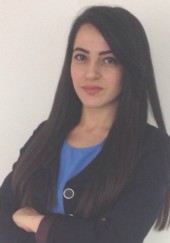
Nebahat Arslan
I am excited to be working with City Disabilities.
I look forward to acting as a mentor and changing the way disability is perceived in the legal profession. Law firms are getting better at diversity and inclusivity, however attitudes of some legal professionals are less than positive towards disabled individuals.
I was diagnosed with dyslexia while I was doing my Legal Practice Course. I was surprised to find out that I had dyslexia. However, I was told that I have a very high IQ. The diagnoses definitely had a massive mental impact on me. I was scared to share it with my family and my friends. Having a brother who is autistic and non-verbal has taught me at a young age the challenges disabled people face and it was difficult for me to apprehend my own disability. I soon developed techniques to cope with it, and I learned that I was gifted in other areas, so I educated myself to use those skills to my advantage. I did not let my dyslexia hold me back in life. If anything, I believe my dyslexia has been something which has motivated me even more for success.
I have been practising as a solicitor for 4 and a half years now. Due to my dyslexia I believe that I have had to work harder to get to where I am today and achieve my goals. I quickly learnt that if you are dyslexic and working in the legal industry you will often come across others, especially colleagues, who are far from understanding, and who are ready to make negative comments, even when they are aware of your disability.
Currently I work in-house for a PLC and I am the General Counsel for the Group. My disability has not stopped me from achieving my goals.
Two years ago I obtained my Higher Rights of Audience in Civil Law. I was surprised at the lack of support I received from the institution and their lack of understanding of dyslexia, however this did not stop me from passing the exam. I had to work harder than other delegates however in the end I successfully passed the course.
I am delighted to be working with City Disabilities and to be part of its mentoring service for disabled legal professionals and law students. I look forward to guiding others through a successful career and helping them to be the best that they can be.
I’m a senior solicitor at Hogan Lovells International LLP, where I practise as a commercial litigator. I joined Hogan Lovells as a trainee solicitor and up until my mid twenties was in excellent health.
It was whilst I was on secondment, working as a Judicial Assistant to the Court of Appeal, that I began to develop pain in both my wrists. As a keen pianist and with admittedly terrible typing technique, an overuse injury was diagnosed at first. However, the pain got progressively worse and spread to other joints before I was diagnosed with an inflammatory arthritis.
Fortunately, I was able to finish my secondment but upon my return to the office, I started the long and slow process of getting the equipment I needed to allow me to carry on with my job. It was so important to me to stay at work and carry on with a job that I love. Giving up was simply not an option. I spent many a late night trialling voice activated software to control my PC and I now have a sit-stand desk and, as my colleagues call it, a “funky” chair.
I found that the most difficult thing for me was to convince people that nothing had changed in terms of my ability to do my job, it was just that I had to approach things differently. My colleagues were brilliant although I am a stubborn soul and it took a while before I would accept their help with simple tasks like loading the printer with more paper! It was a learning curve for both me and my employer – neither of us had any experience of arthritis in the workplace or knew what would work in terms of practical solutions for my physical disability.
I’m delighted to be working with City Disabilities and would be very happy to speak to anyone who is considering discussing the management of a long term health condition with their employer.
Vishal Mehta
City Disabilities represents a real opportunity to address the last of the 4 major areas of prejudice – Race, Gender, Sexuality and Disability. I am proud to be part of an organisation that is working to develop both an understanding and an acceptance of the differences (not shortcomings) of those with disabilities and medical conditions. I see my role as a mentor as key to supporting individuals to achieve their potential and look forward to coaching some really talented future professionals.
My condition is known as Hemiplegia and it is a neurological condition which is caused by damage to the brain, often close to or soon after birth and has similar symptoms to stroke. Common challenges which I have experienced as a result of this include dexterity issues, muscular weakness and out of the ordinary fatigue. Despite this I am proud to say I read Chemistry and Management at Imperial College London (2007-2010) whilst meanwhile captaining the Table Tennis team to the BUCS Trophy in 2009 and taking up the role of Vice-President on the Imperial College Investment Club. Since then I have completed my CIMA examinations during my graduate scheme at the John Lewis Partnership and am currently a Management Consultant at KPMG. During each of these roles I have taken a keen focus on promoting equality for all of those with disabilities.
I fully endorse the vision of City Disabilities and look forward to working closely with the team to drive this important message forward. I look forward to hearing from some inspiring people.
Liz Dawes
I worked in the City as a solicitor, both in private practice and in house, for over 15 years. For several years I was Deputy General Counsel at an Asset Manager. I am now full time trust officer for City Disabilities, and responsible for the day to day running of the charity. I am also a parent of two children with a variety of differences.
My time in the City gave me invaluable experience in recruiting, training, and retaining staff, as well as insight into how the City treats its employees. I believe passionately that the City has much to gain from becoming truly diverse, not just because it is the right thing to do, but because there is a commercial imperative to do so: innovation has never come from a room full of people who are the same.
I am the first port of call for every potential mentee that contacts City Disabilities, and I hear all of their stories. Some are good, and show us that there are many employers out there who take diversity and inclusion seriously. Other stories are far from good, and show us there is still a long way to go. Whatever their issue, my job is to put our mentees in touch with a mentor who can help them make the very most of their career. My experience of our mentees is that, whatever stage their career is at, they have shown loyalty, dedication and determination to overcome whatever hurdles are in their way – the very qualities most City employers want.
I also mentor people myself, on occasion. My experience in enabling colleagues with differences is mostly in the mental health area, which still carries great stigma, and which many of our mentees still feel compelled to hide from their employers. I hope to guide them in their careers and bring out the very best of what they can do, as well as build their confidence and self belief.
Robert Hunter
I am a solicitor and have worked in the City for over 30 years. I struggled with dyslexia as a child (still do to some extent). Throughout my career, however, I have suffered from progressive hearing loss. I am now profoundly deaf and have been so for years.
Nobody should ever let a disability prevent them from developing their true potential. In fact, it is now becoming recognised that disabilities can be “desirable disadvantages” requiring those who have them to develop enhanced perception resourcefulness and other qualities. Nevertheless, pursuing a career in the City with a disability can be a challenge. The City is a competitive place and treatment of colleagues with disabilities can range from completely fair and reasonable to utterly appalling. Much depends upon the culture of the particular organisation. A particularly common problem is the current pressure on City employers to project themselves as diverse. There can be a real gulf between how organisations present and see themselves and how they actually behave towards people with disabilities on the office floor. Another problem is the commercialisation of diversity. It can also be very difficult for students with disabilities to obtain independent advice, since so many organisations who give it have commercial links with employers.
I have encountered many of the difficulties that my mentees come across and I am acutely aware of the problems of feelings of guilt and isolation that a disability or medical condition can involve. Whatever the environment, I try to help mentees arrive at the best strategy for them, recognising that all disabilities differ as do their employers and the people who have them.
I am pleased to be a mentor for City Disabilities. I feel passionately about instilling confidence in people with disabilities and long term health conditions, and also employers who feel awkward and uncertain about employing people with disabilities.
I studied law at QMW University in London and trained at Brachers solicitors qualifying in 2003. I then went on to work at Thompsons solicitors until 2005, before moving to Clyde & Co where I am now an Associate in the Casualty and Healthcare Team.
I sustained a stroke of the spinal cord in 2008, which rendered me paralysed, and I am a full time wheelchair user.
I was lucky as my employers and colleagues have been fantastic. However, I do remember feeling very vulnerable after I was first injured and I felt like the odd one out at times. I do know that some people do not always have a positive response from employers or they are fearful about entering the workplace as a disabled person and lack confidence.
I am part of the Disability Group at work which has recently been set up. The hope is that we will learn how to make working life more comfortable for everyone – employees and employers alike – so that we can all be ourselves at work.
I look forward to sharing with mentees the strategies that I have used to help me feel more comfortable at work, and also to signpost people to networks which can help enormously with coming to terms with a disability.
Warren Stapley
I am delighted to be working with City Disabilities and look forward to assisting other disabled aspiring professionals to achieve their goals. I look forward to acting as a professional mentor and making a real contribution to the way disability is perceived and managed by both employers and employees in the City. Professional service firms are making strides towards a more inclusive workforce that captures the talents of certain disabled individuals, but there is still much more to be done. In particular, there is a real need for the encouragement and support which City Disabilities can offer in helping disadvantaged applicants to discuss their issues and concerns in a safe forum, without judgment and with a view to helping them utilise their strengths.
By way of background, I was born with a severe hearing impairment and have worn hearing aids from the age of six. In addition, I have benefited from many years of tuition to assist with my speech and lip-reading. My particular hearing loss, which makes it particularly difficult to discern speech, affects my day-to-day life such that I’ve come to rely on my hearing aids, without which I would be unable to carry out my role as a financing solicitor. Before that, I studied Jurisprudence (Law) at Oxford University followed by my Legal Practice Course with BPP Law School in London. I then trained with Slaughter and May, qualifying as a financing associate before joining the London debt finance team of U.S. firm Kirkland & Ellis International LLP. Prior to qualification, I was also elected to the Executive Committee of the Law Society’s Lawyers with Disabilities Division and I maintain a keen interest in the way professionals manage disability in challenging work environments.
I admire the mission of City Disabilities and along with the rest of the team, will work hard to ensure it is a success. I am very happy to be contacted and enquiries through the charity’s website are most welcome.
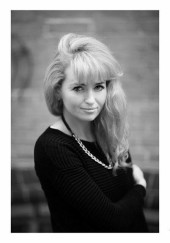
Charlotte Barnett
I studied Law at Southampton University, followed by my Legal Practice Course with Kaplan Law School in London. I had two years of paralegal experience offshore and with reputable City firms before starting my training contract with Reed Smith. I am currently in my third seat, in Structured Finance. I am on the Reed Smith Diversity Committee and provide mentoring support to several disability and diversity communities. This is an area that holds great significance for me.
I was born with a sensorineural hearing impairment and have worn hearing aids from the age of two. Without these, I would be unable to live the professional and social life that I have become accustomed to. Given the severity of my disability, I am very lucky in that it usually has little impact on my life on a day to day basis. However, because it is often so unnoticeable, I find myself having to remind people around me on those occasions when it may pose an issue. This has been a learning curve over the years and I can emphasise with the difficulties that aspiring solicitors with disabilities may face in the profession.
Recognition of disabilities in the City has improved greatly in the last few years and there is certainly a structure of support that was lacking to some extent at the beginning of my education and career. However, there is still huge potential for improvement. For these reasons I feel very strongly about working with City Disabilities and really look forward to providing support, understanding and advice where possible to help aspiring professionals to achieve their goals.
In a world that is increasingly changing in dynamic due to new political and digital advancements, it is more important than ever that employers and employees work together to discover and nurture talent that previously has gone unrecognised.
Andre McClean
I am delighted to be involved with City Disabilities. I have been a litigator in the City for 8 years, working both in private practice and in-house legal roles. I was diagnosed with dyslexia at the age of 31.
As Dyslexia is a non-visible impairment it can often be challenging to communicate the difficulties we face as a result of the condition. In my case, Dyslexia impacts my short-term memory and organisation skills, which can make day-to-day tasks at home and at work more complex or time consuming than they need otherwise be.
For most of my professional life I was unaware that I was dyslexic. I simply accepted the fact that severe working patterns were a part of City life and I didn’t fully appreciate that my colleagues were keeping much more reasonable hours but were clocking up the same, or more, ‘billable hours’ (a key performance indicator and the principal income stream in many professional services firms) than I was.
Post diagnosis, I have been open with colleagues and bosses about how I am impacted by dyslexia and offered up ways in which they can help. All large organisations are nominally supportive of dyslexia, usually under the banner of diversity; like all disabilities, however, the support one receives is 90% based on the level of understanding shown by the immediate line manager and the pressure they themselves are being placed under. I have had some superb experiences and also some challenging ones. Dyslexia – a syndrome of different symptoms – is a difficult thing for many to understand and some academics and experts even go as far as to query the value of employing a single word, ‘dyslexia’, to describe a diverse range of difficulties; they would rather the term was done away with. It’s not surprising, therefore, that many lawyers and line managers are sceptical of the D word.
Prior to my involvement with City Disabilities I was a volunteer legal advisor with the Disability Law Service in Whitechapel and a pro bono advocate for the special education charity IPSEA.
I am now looking forward to working with City Disabilities. It is a really useful forum for disabled colleagues to share their views and discuss what works and what doesn’t when engaging with employers to ensure that individuals get the support necessary to sustain and progress in their chosen career.
Tim Hardy
I first experienced serious deafness in my late teens, commencing my legal studies at Oxford reading Jurisprudence. After university and College of Law, I qualified as a solicitor, practised for the best part of thirty years in the same City law firm, specialising in international insurance and reinsurance litigation and arbitration, for many years as a senior equity partner, latterly as a practice area head, becoming an accredited CEDR mediator and being elected Chairman and, currently, Vice President, of the British Insurance Law Association among other external appointments.
Since 2008 I have served as Assistant Secretary-General to an international insurance law association and chair a working party concerned with the insurance and financial challenges presented by Climate Change. This involves my travelling quite extensively arranging, chairing and speaking at conference sessions, most usually involving delegates from over thirty countries, all helped to communicate by simultaneous translations… some patience … and good humour. At the same time I also serve as a charitable trustee for two further London-based organisations, one of which, STAGETEXT, concerns itself exclusively with affording access to the arts (and wider educational activities) for those with hearing loss, principally through the use of captioning (subtitles). The arrival of text and email and the advancement of voice recognition technology are both helping to bring down a number of barriers.
From the late 1970s only a few very close colleagues knew I had what was already a severe hearing loss. Or that I relied heavily upon wearing two high-powered hearing aids and self-taught lip-reading skills. Only in the last ten years when my hearing loss has descended through the lower reaches of profound loss to being lost entirely in early 2014 did it become essential for me fully to explain my personal circumstances and how challenges on all sides may be minimised. In February 2015 I had successful cochlear implant surgery. My restored hearing has now again presented fresh challenges.
In hindsight it may appear very strange that I did not make a far more deliberate effort to explain the challenges I faced from the outset or to seek more positive assistance; even paradoxical that I should specialise in a field of law where clients and cases would commonly involve the added complications of foreign jurisdictions and languages. Or even more perverse perhaps that I should choose to spend the best part of my professional years seated in the aurally-challenging milieu of committee rooms, court rooms and conference venues, often wearing headphones, trying to catch English being spoken as a second language.
There is no shame, even merit and benefit, from coming to appreciate which career paths or choices made may prove over time less well-suited than others. Of equal importance is not being cowed into believing that “safer” options should always be chosen. It is remarkable to discover how far one may succeed and often exceed expectations more easily when concentrating one’s energies to overcome obstacles in one’s favoured path. Addressing those issues invariably offers valuable insights into those of others. On supposedly easier paths one may find oneself weighed down by the heavier burdens of boredom or disappointment.
My interest in City Disabilities and the valuable work it is now seeking to undertake for those addressing the challenges of a disability of some form or other, whether overt, declared or otherwise, lies in part from my recognition that my own story and experience is unlikely to be exceptional in the many apparent quirks and inconsistencies it involves. No two people’s challenges, nor their most effective way of making light of them, are likely to be the same. I claim to have no special insight or monopoly of wisdom. I do however strongly suspect that we might all hugely benefit from learning what we can from others who have been or are now going down a similar path, not simply better to equip themselves for a more successful professional career, but also to allow those who are expecting us to succeed to educate themselves and make appropriate adjustments to permit that to happen.
Jonathan Fogerty
I am employed as a solicitor and as the National Lead on Spinal Cord Injury with Slater & Gordon Lawyers in Manchester. I specialise in serious injury compensation cases. I am also a qualified mediator with an interest in mediating disputes arising out of the Equality Act.
I am 41 and have been tetraplegic ever since an injury in 1988, when aged 14, I dived into the shallow end of a swimming pool. My head struck the bottom of the pool, breaking my neck at C5/6 and instantly rendering me paralysed and a wheelchair user. After my injury I was treated and rehabilitated at the Southport Spinal Injuries Centre.
On discharge from hospital, I completed my schooling and university studies. My chosen career was law and I qualified as a solicitor in September 1999. Since then I have worked as a personal injury solicitor in Manchester dealing with catastrophic injury claims and in view of my own background, have a particular interest in claims arising out of a spinal cord injury.
I am a strong advocate for those living with a disability and to date have delivered presentations and contributed to APIL, SIA and MASCIP (Multi-disciplinary Society of Spinal Cord Injury Professionals) conferences about spinal cord injury. I believe education is the key to supporting all those working with spinal cord injured people.
I have long been associated with the work of the Spinal Injuries Association (SIA). I have been an SIA Trustee for fifteen years and recently retired from the position of Chair. I have also been Chair of the Building Committee, overseeing the building and design of the universally accessible SIA House, SIA’s new headquarters. I was a founder member of the SIA Cornflower Ball, an SIA fundraising event held annually in Manchester for the legal community.
I was also the SIA Training Officer from 2007 until 2009 and delivered training courses on spinal cord injury and educated professionals working in the field. In my time with the SIA, I delivered comprehensive spinal cord injury training to a variety of audiences including community healthcare groups, case managers, university therapy students and personal injury solicitors. I returned to my career in law with Fentons Solicitors in May 2010.
I am from Manchester where I live with my wife, Charo. I have traveled extensively since my injury to New Zealand, Africa and closer to home, throughout Europe. I am a keen skier, traveling annually to Sweden to participate in this exciting sport.
I look forward to working with City Disabilities, and to mentoring those with similar issues to mine. I hope that I can use my experience of working in a profession to help my mentees build a successful career in their chosen field.
